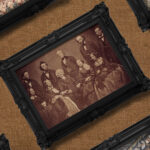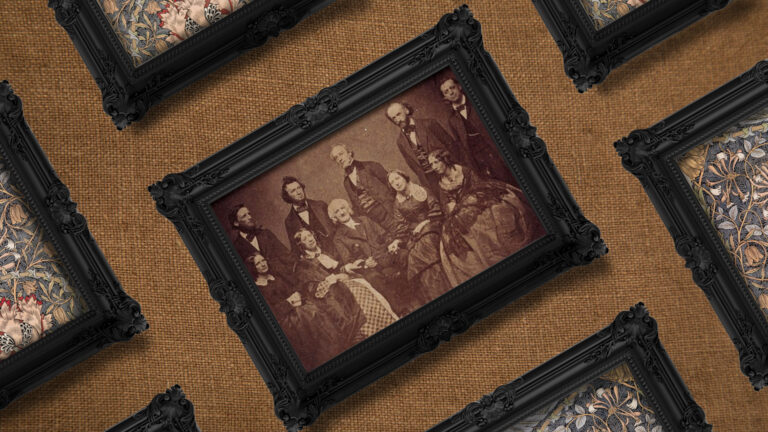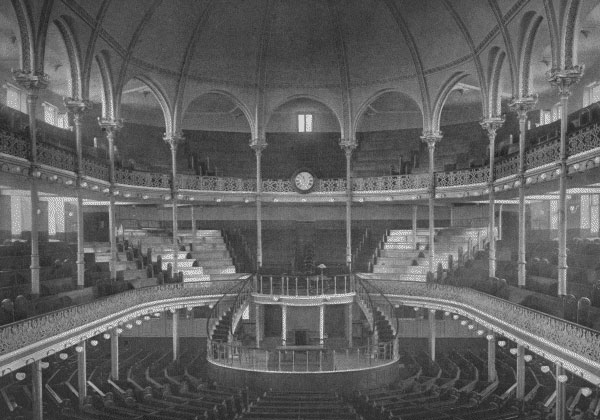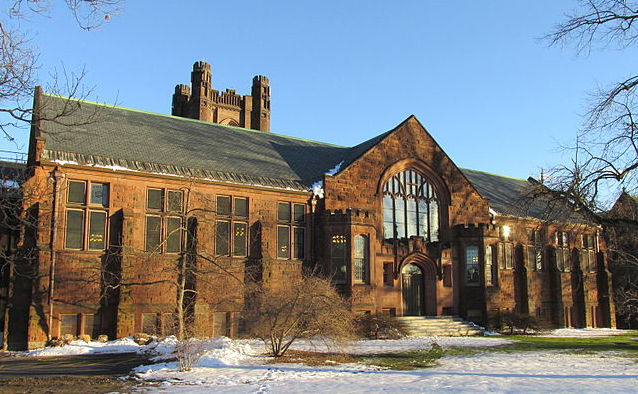Today’s guest post is by Benjamin J. Wetzel, assistant professor of history at Taylor University. He is currently at work on a religious biography of Theodore Roosevelt (under advance contract with Oxford University Press).
Early in the morning of January 6, 1919, former president Theodore Roosevelt died in his sleep in Oyster Bay, Long Island. “Death had to take Roosevelt sleeping,” Woodrow Wilson’s vice president Thomas R. Marshall remarked, “for if he had been awake there would have been a fight.” More poignantly, Roosevelt’s son Archie sent a simple telegraph message to his siblings: “The old lion is dead.”
One hundred years after Theodore Roosevelt’s death, his shadow still looms large in American culture—literally at Mount Rushmore, where his visage can be seen miles away. Figuratively, he looms because Roosevelt serves as a touchstone for liberals and conservatives, militarists and environmentalists, big-game hunters and those who admire his refusal to shoot a certain “teddy” bear in Louisiana. TR fascinates Americans, as evidenced by the thousands of visitors to Theodore Roosevelt National Park, his prominence in films like Night at the Museum (2006), and the attention paid to him in Ken Burns’s The Roosevelts: An Intimate History (2014).
Lost in all the material about Roosevelt, however, has been the place of Christian faith. Roosevelt’s faith would likely be regarded as problematic by many Gospel Coalition readers, but it was nevertheless real. Indeed, despite a lack of evangelical bona fides, Roosevelt’s lifelong engagement with Christianity has lessons to teach believers today.
Roosevelt was born October 27, 1858, to a wealthy family in Manhattan. His parents were members of various Presbyterian and Dutch Reformed congregations. In the Roosevelt household, prayers were regular, churchgoing was weekly, and little Teedie (as he was called) was often required to summarize the morning’s sermon. The 16-year-old Theodore Roosevelt made a profession of faith in 1874 and became a member of his family’s congregation, Collegiate Reformed Church of St. Nicholas. Emulating his father’s work with the indigent in New York City, Teedie taught a “mission” Sunday school class for underprivileged children until he left for Harvard in the fall of 1876.
Harvard proved to be the pinnacle of Roosevelt’s pious, doctrinally grounded faith. Although he was hundreds of miles from home, he nevertheless continued his Sunday school teaching at Christ Episcopal Church in Cambridge (until he was discovered to be a Presbyterian and subsequently dismissed). His diary entries from his college days reveal a young man taking in Harvard social life but also attempting to maintain a relationship with the Lord. The depth of Roosevelt’s faith becomes especially evident after Theodore Sr. died of bowel cancer in 1878. Devastated, the young Roosevelt read passages of Scripture, copied a hymn in his diary, and confessed “nothing but my faith in the Lord Jesus Christ could have carried me through this, my terrible time of trial and sorrow.” While this testimony was significant, it would also prove rare: almost never in later life did TR mention Jesus Christ directly.
This absence certainly had something to do with the crushing tragedy Roosevelt suffered in 1884. The 25-year-old Roosevelt received a cable in Albany stating that his wife was in poor health after delivering their first child. Panic-stricken, Roosevelt boarded the first train to Manhattan only to find his wife and his mother dying in the same house. While his infant daughter, Alice, survived, his wife and mother perished within a few hours of each other. Filled with grief, Roosevelt traveled to ranches he had purchased in the Dakota Territory.
After 1884, Roosevelt’s religious life is harder to track. His diary entries became less frequent (and less revealing) after his marriage in 1880. His subsequent rise through political, administrative, and military channels left little time for reflection on his interior religious life. Nevertheless, certain patterns are apparent throughout Roosevelt’s adulthood:
• Strong connection to the church
Roosevelt remained a (nearly) weekly churchgoer for the vast majority of his life. His second marriage (to an Episcopalian, Edith Carow) buttressed his liking for liturgical congregations. He also enjoyed attending German Reformed, Dutch Reformed, and Presbyterian churches.
• Knowledge of the Bible
While most people living in 19th-century America were familiar with the King James Bible, few laypeople knew the Scriptures as well as TR—and put them to the political uses he did. While he frequently cited his political principles as being based on the Ten Commandments and Golden Rule, he also appealed to obscure passages of the Bible. In his historical work, The Winning of the West, for example, he compared American pioneers to the Danites at Laish (Judges 18). In 1912 he told the Progressive Party convention, “we stand at Armageddon and we battle for the Lord” (Rev. 16). During World War I, he invoked the curse of Meroz (Judg. 5:23) on those who were slow to assist the Allies. While many disagreed with how TR used the Bible, none could contest how well he knew its contents.
• An emphasis on “righteousness” and “morality”
According to Roosevelt’s environmentalist ally Gifford Pinchot, the 26th president was “a preacher of righteousness.” Clerical language abounds in descriptions of him, like the newspaper reporter who claimed that he kept “a pulpit concealed on his person.” Roosevelt himself encouraged this kind of language, describing the presidency as a “bully pulpit” (with the word “bully” meaning something like “grand”). While Roosevelt was prone to the same sinful tendencies that afflict all human beings, he insisted that his actions were governed only by considerations of right and wrong—and many times he was correct.
• Stress on ecumenism and lack of doctrinal specificity
For many TGC readers, this will be the most disturbing part of TR’s faith. As an adult, Roosevelt grew increasingly broad-minded about religious belief. This had its positive side, as he refused to discriminate against Roman Catholics, or when he appointed the first Jewish American, Oscar Straus, to a cabinet position in 1906. However, Roosevelt’s ecumenism was also ideological: He believed that people could believe whatever they wished about God as long as they were personally moral.
The most famous instance of this attitude occurred in 1908, when Roosevelt’s friend William Howard Taft was running for president. Conservative Protestants accused Taft (accurately) of being a Unitarian—that is, a member of a sect that denies Jesus’s divinity. Although TR stayed on the sidelines during the election, privately he derided the “bigoted” and “narrow-minded” Protestants who opposed Taft and later stated publicly that Taft’s theological beliefs were between himself and God. Moreover, Roosevelt himself seemed to doubt the existence of heaven; he frequently used the phrase “going out into the darkness” to describe what happens at death.
All this, then, leads to at least two lessons 21st-century Christians might learn from Theodore Roosevelt. Positively, believers can be inspired by Roosevelt’s stress on righteousness and morality. This emphasis, of course, is well in keeping with the biblical injunctions to live in a way that honors God. However, there is little in Roosevelt suggestive of grace, mercy, or redemption. “I am mighty weak in the Lutheran and Calvinistic doctrine of salvation by faith,” he once confessed, “[but] I do believe in the gospel of works as put down in the Epistle of James.” Roosevelt excelled at preaching law, but observers can wonder if there was any need for grace in his moral economy.
More negatively, evangelicals would quarrel with the breadth of Roosevelt’s ecumenism. It is one thing to treat all people with respect and dignity, and another to assert that their beliefs are irrelevant to their eternal destinies. Precisely because Roosevelt emphasized moral conduct so much, he minimized doctrines essential to orthodox Christian faith. In other words, in his desire to gain allies in righteous causes, he jettisoned some of the fundamental claims of his own faith (such as the exclusivity of Christ as Savior). Contemporary believers must resist the urge to downplay essential Christian doctrines in efforts to find allies in the culture wars.
In conclusion, Roosevelt’s example offers some possibilities for witnessing to friends and family members who are perhaps only nominal believers. Roosevelt certainly thought of himself as a proper Christian who was doing the Lord’s work on earth. He likely would not have reacted well if someone had questioned the authenticity of his faith or pointed out that he was departing from important doctrines that had defined orthodox Christianity for centuries. Yet, those departures were significant.
In fact, those issues were not unique to the 19th or 20th centuries—don’t we each know people today who claim the Christian label but whose faith seems uncertain? Engagement with Roosevelt’s religion might help us approach such family and friends with sensitivity. When we understand Roosevelt’s story, we can perhaps learn to appeal to the Scriptures, historic orthodoxy, or some other measure our nominal friends might respect when we try to help them see their own departures from the gospel.
While Christian historians can never know with certainty if people from the past were truly born again, they can point to patterns in people’s lives. From my vantage point, Roosevelt’s life of faith offers both encouragement and caution. People are complex—and contemporary evangelicals can appreciate aspects of Roosevelt without adopting his outlook wholesale.

















